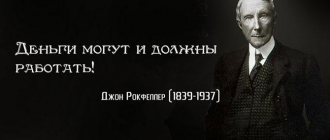The only luxury I know is the luxury of human communication (A. de Saint-Exupéry)
The author draws our attention to the fact that the role of communication in human life cannot be overestimated. This is a natural need caused by being in society. A person deprived of the opportunity to communicate with his own kind will never be able to become a social person.
I agree with the author’s opinion that a person needs to communicate, since this need is the goal of relationships with other people. If a person is isolated from society, he will begin to degrade. This problem is relevant in modern conditions, because today there is a shortage of live communication among both adolescents and adults. Electronic correspondence has become increasingly relevant, in which it is difficult to determine the emotional state of the interlocutor. A big disadvantage of electronic communication is also the devaluation of language, which gives rise to illiteracy among teenagers. In addition, residents of megacities lead an exhausting lifestyle: they work a lot, spend several hours on the road, as a result of which they have neither the strength nor the desire to communicate.
Let's consider the statement from a theoretical point of view. Communication is a complex process of interaction between people, consisting of the exchange of information, as well as the perception and understanding of each other by partners. In the process of communication, people transfer knowledge and experience to each other, evaluate each other, interact, and find a partner to create a family. He focuses on other people, compares himself with them. This is how societies of people are created in which it is not customary to kill or humiliate. Full communication allows a person to feel complete and satisfied, which leads to the development of his capabilities, self-realization and success. If a person communicates little, he gradually withdraws into himself, an inferiority complex develops, his mental state worsens, and degradation begins. Therefore, we cannot live and develop normally without communication and interaction.
Numerous examples from the literature confirm the author’s idea. In Daniel Defoe's book Robinson Crusoe, a young man went on a journey by sea and his ship was wrecked. The young man did not die; he was thrown onto a desert island. At first he was very scared, but gradually began to get used to being alone. The young man built a hut, tamed livestock, learned to cook, and even started making cheese. But he lacked human communication. To avoid going crazy, he prayed a lot and wrote a diary about his life on an exotic island. Later, he sheltered a local Aborigine and taught him to speak his language. Thousands of readers believed in Robinson's story. People are sure that only a strong-willed person can live for some time without communication. The weak ones go crazy after 2-3 years of complete loneliness.
We see confirmation of the author’s thoughts in the media, for example, 40 years later, a father and son who fled there during the war were discovered in the wild forests of Vietnam. Their story turned out to be very sad. A man lived in a village with his wife and 3 sons. During the conflict, conflict escalated between US soldiers and Vietnamese soldiers. As a result of a mine explosion, his wife and 2 children were killed. Then the head of the family took his one-year-old son and ran away with him into the jungle to hide. Father and son hid for 40 years, never realizing that the war was over. In August 2013, residents of one of the villages noticed two men wearing loincloths made from tree bark and reported them to the authorities. The men were found after 5 hours of searching; at that time they were 80 and 40 years old. The elderly man practically did not remember the local dialect, but still, he was able to talk about what happened. The son communicated only with signs and strange sounds. All these years, the men grew corn, collected fruits and vegetables, and sometimes hunted small animals. They lived in an elaborate tree house, which they built from branches and leaves. The men underwent medical examination, received treatment and were integrated into modern society.
Having analyzed theoretical arguments and given practical examples, we can conclude that a person cannot live and develop normally without communication and interaction with his own kind. Communication is of great importance in the formation of the human psyche, its development and the formation of reasonable, cultural behavior.
Choose an answer
Essay Bank
We present to your attention examples of social studies essays written according to our recommendations.
In our essay bank you can find essays on the following statements:
Essay 1. “Business is a most exciting game that combines maximum excitement with a minimum of rules” (Bill Gates)
Essay 2. “The only luxury I know is the luxury of human communication” (Antoine de Saint-Exupéry)
Essay 3. “The true equality of citizens consists in everyone being equally subject to the laws” (J. d'Alembert)
Essay 4. “He who has not studied man in himself will never achieve deep knowledge of people” (N.G. Chernyshevsky)
Essay 5. “Man is not a thing, but a living being, which can only be understood in the long process of its development. At any moment of his life, he is not yet what he can become and what he may yet become” (Erich Fromm)
“Business is a most exciting game that combines maximum excitement with a minimum of rules” (Bill Gates).
With these words, Bill Gates wanted to express the idea that business is not a routine job that people do solely for the sake of a salary, but that it is an interesting and risky activity that opens up great opportunities for a person. Business, of course, is regulated by laws, but in modern market economies there is a rule according to which business develops at a faster pace, the less government intervention in its activities. The state and laws regulate mainly the tax side of the issue, but everything else - what to produce, how to produce, for whom to produce - is decided exclusively by the business owners.
In my opinion, Bill Gates is absolutely right. In fact, business is maximum independence with a minimum of ready-made solutions, a combination of freedom and risk.
I think so for two reasons.
Firstly, success in business depends primarily on the personal courage, intelligence and hard work of the person who decides to start it. An entrepreneur can only rely on himself. Often, in order to obtain initial capital or, for example, funds to expand an existing enterprise, businessmen are forced to take out large loans from banks. An incorrect calculation, a global financial crisis or a natural disaster can lead to enterprise failure and bankruptcy. In this case, the businessman will not only lose the company and acquire an outstanding loan, but (for certain types of company) also his personal funds and property. Doing business, therefore, is always a risk. And risk creates excitement. No one could have known in advance that people would be interested in spending time on social networks on the Internet and that one day it would be possible to make money with their help, but Mark Zuckerberg in America and Pavel Durov in Russia took a risk and created the giant companies Facebook and VKontakte. The same applies to tablets and smartphones. Their appearance required huge investments with complete uncertainty whether anyone would ultimately buy the new product.
Secondly, in the modern world of a market economy, the state has no right to interfere in business activities. The idea of an enterprise, as well as all subsequent ideas related to the tasks of business expansion, its optimization and efficiency, are not limited by any legislation or regulations. Moreover, the businessman himself creates the rules. Of course, an entrepreneur is obliged to pay taxes and comply with labor and tax laws, but within these restrictions, he is the creator of the world of his own corporation. For example, the profit margin of a large company seriously depends on management (the science of company management). Within its framework, a variety of rules can be adopted: days of free clothing are allowed or, on the contrary, a strict dress code is introduced; it is allowed to address superiors on a first-name basis or demand compliance with subordination; allowing a free schedule or penalties for being late. As we see, the rules can be anything and no one except the owner of the enterprise has the influence to introduce or cancel them.
“The only luxury I know is the luxury of human communication” (Antoine de Saint-Exupéry)
The famous French writer Antoine de Saint-Exupéry said: “The only luxury I know is the luxury of human communication.” With his statement, he wanted to emphasize happiness and the importance of communication in the life of every person. After all, what do we call luxury in life? Value, something very expensive in money, without which life is possible, but does not have external shine or chic. Usually luxury is a material object: a yacht, a house on the ocean. Only very rich people can afford such things, but Antoine de Saint-Exupery, comparing communication with luxury, makes it clear that communication is also a value, but it does not require any special investments, except mental ones.
One cannot but agree with this statement. Indeed, communication is what makes a person’s life brighter, more interesting, fuller, it eliminates the feeling of loneliness and it is a luxury, if only because the happiness of communication is not always available to everyone.
Why do I think that communication is of great importance in a person's life?
Firstly, because, as you know, a person is not only a biological, but also a social being. The person is capable of speech. Communicating with others like himself is one of his main needs. Only in communication can he express himself and realize himself as a person. Let us recall, for example, Dumas’s work “The Count of Monte Cristo”. His hero Edmond Dantes was thrown into prison on false charges and put in solitary confinement. He was young and healthy, but being isolated, cut off from people, he almost went crazy, although he ate daily and had the opportunity to sleep enough. Moreover, prison guards reported that most prisoners, after several years of prison life in solitary confinement, completely lose their human appearance. Only an unexpected acquaintance with a neighbor saved Dantes from repeating their fate. Communication with his neighbor not only allowed Dantes to survive, but also developed him as a person.
Secondly, man is a creative being. Man has consciousness, the ability to transform reality, to make tools. But he will not be able to realize everything that is inherent in him without contact with other people. In communication, people socialize, receive the necessary knowledge, skills and abilities and, accordingly, communication is an area of activity that helps to develop, reveal and realize a person’s enormous abilities.
Third, communication satisfies important human needs. It entertains and gives joy, it allows you to express yourself and satisfy the craving for recognition. Let us remember the famous poet Blok. He turned his life, his communication with his wife and friends, his sorrows and joys into poetry. This is how he expressed himself. He read poems to other people at evenings, published them in magazines, and through this, he satisfied the need for recognition. And in the most difficult periods of his life, he, like any other person, sought solace in conversations with friends and loved ones.
“The true equality of citizens consists in everyone being equally subject to the laws” (J. d'Alembert)
J. d’Alembert owns the phrase: “The true equality of citizens consists in everyone being equally subject to the laws.” The meaning of his statement is that the equality of people in any state is verified by the presence of laws that are the same for all. Regardless of their position in society, income and influence, people must understand that if they break the law common to all, they will be held accountable for it, and no amount of privilege will help them avoid this. Only this state of affairs excludes the possibility of the emergence of a higher, special layer of people who are capable, taking advantage of their privileged position, of abusing the laws, which is usually the cause of social tension and conflicts in society. People are able to recognize a fair state of affairs in which a person who works a lot is rich, and another who does not want to work is poor. However, it is no longer possible to come to terms with the fact that wealth or poverty does not depend on a person’s personal qualities, but on laws that are different for different categories of citizens or on the ability of a separate layer to circumvent these laws.
In my opinion, this idea is absolutely correct, and equality before the law ensures the equality of citizens.
First, a society in which all laws are not equal is always full of visible injustice. In such a society there will necessarily be serious social discord, and therefore tension and conflict. Let us recall the history of Russia at the beginning of the 19th century. until 1861. This was the time of the existence of serfdom, that is, the unconditional inequality of people. One of its manifestations is precisely unequal laws. For example, for the same crime, peasants could be punished corporally, but nobles, the owners of the peasants, could not. Peasant uprisings and riots, as well as the noble uprising of the Decembrists, became a reaction to injustice. The situation reached such an intensity that in 1861, despite the resistance of the landowners, the government abolished serfdom. However, once again the law was unjust, giving nobles and peasants different access to land. The result of this decision will already be a revolution.
Secondly, the law is the only opportunity for the practical implementation of equality of citizens. People will always differ in their level of wealth, talent, intelligence, well-being; you cannot make everyone equally rich or equally poor. However, the same law can be applied to everyone and this will ensure their equality. The law seems to ensure equality of opportunity. Let's remember the history of the USSR. The government tried to equalize people's level of material wealth. The result was disastrous. People lost interest in work, initiative disappeared, and the economy fell into crisis. At the same time, formally in the USSR there was a law that equally subjugated all layers of society. However, this law, on the one hand, prevented people from being not equal, but different in all other areas (ban on entrepreneurial activity, ban on pluralism), and on the other hand, it ensured the equality of people only formally and the wrong origin (a person from a former noble family or family priest) or nationality (Soviet anti-Semitism) placed a person outside the law.
“He who has not studied man in himself will never achieve deep knowledge of people” (N.G. Chernyshevsky)
The statement of the writer Chernyshevsky indicates the importance of a person knowing himself. If you don’t understand your own personality (and personality is a person taken in the aspect of his social qualities), you don’t study the motives of behavior, the reasons for your good and bad actions, the mechanism for the emergence of a variety of emotions and much more - you won’t be able to truly understand the people around you myself. How do you understand what goodness is until you yourself do a good deed and find out that it requires effort? How can you understand the importance of goodness until you yourself find yourself in a very difficult situation and receive the help of a kind person? Paying attention to our own reactions to any life situation helps us understand the reactions of others.
I completely agree with the writer's opinion.
Indeed, life experience shows that people who think deeply about their personality understand others better.
To prove my opinion, I would like to give the following two arguments.
Firstly, as you know, humans are a biological species. Each of us has our own unique individuality (individuality is the distinctive qualities of a person), but still we are all individuals and our bodies and even psychology are structured according to the same laws. To understand, for example, whales, people select one or two individuals from all their diversity and seriously study them. Based on the knowledge gained about these specific whales, conclusions are drawn about the entire species. The same principle (of course, with a number of clarifications) works when we talk about people. To learn to understand people, we can carefully study those around us, but there is another way: study ourselves, understand ourselves, delve deep into our own consciousness in order to be able to explain the actions and thoughts of other people. So a man said a rude word to us, and we were upset. We can conclude: people hate it when they are rude. So they made a promise to us and did not keep it, and in response, a decision was made to no longer have common affairs with this unreliable person. Another conclusion is drawn: you should keep your promises if you don’t want people to be disappointed in you. And so on.
Secondly, the thesis about the need to study a person within himself in order to understand others has already been fully proven scientifically. Psychologists and psychotherapists are people who professionally study the laws of mental functioning and the characteristics of human behavior. Psychologists help people get out of difficult situations, understand their needs and abilities, and much more. So, a practicing psychologist needs to consult a psychologist himself. This is a prerequisite for conducting practice and an indicator of professionalism. In other words, without studying oneself, a person in the professional community of psychotherapists is not allowed to start practicing and deal with other people's problems.
“Man is not a thing, but a living being, which can only be understood in the long process of his development. At any moment of his life, he is not yet what he can become and what he may yet become” (Erich Fromm)
The philosopher E. Fromm owns the phrase “Man is not a thing, but a living being, which can only be understood in the long process of its development. At any moment of his life he is not yet what he can become and what he may yet become.” By saying these words, the philosopher tried to draw attention to the ability of human nature to change throughout life. He hinted at the incorrectness of judging a person by one specific act at any moment in life; a person is not a thing unchanging over time, but a living being who should be judged by the totality of all his deeds throughout life.
I agree with Fromm's opinion. Indeed, a person is a living and intelligent being; he is capable of both development and degradation. It is impossible to make a comprehensive opinion about a person if it is based on a single episode from his life.
To prove my point, I am ready to give two arguments.
First, let's remember what we mean by the concept of personality. Personality is the totality of a person’s social characteristics. You cannot be born a person, you can only become a person. At ten years old a person is still just figuring out, forming, at twenty he is already something of himself, perhaps demonstrating bright abilities, and at thirty or forty he either achieves some success in life, acquires a reputation as a decent person, or achieves nothing, wastes his abilities by wasting time on entertainment. You can be a personality already in early youth, but some take years to finally form.
Secondly, the fate of a person is unpredictable and often completely surprising; a person is capable of very serious changes. Let us remember the famous philosopher Sergei Bulgakov. From his youth, he abandoned his future as a clergyman, broke with the church and turned into a fiery atheist revolutionary. Could he have imagined at that moment that the revolution, which he was waiting for and was bringing closer with all his activities, would make such an impression on him with its cruelty that it would force him to turn to the church again, break with his revolutionary friends and accept the priesthood? However, this is exactly what happened to him. From an atheist socialist, he turned into a monarchist priest. There are a lot of such stories: Alexander I turned from a liberal into a conservative, Dostoevsky from a member of an underground anti-government organization into a defender of the monarchy, Leo Tolstoy from a Christian into an excommunicated writer, etc. All of them confirm the idea that a person changes throughout his life.
Some of us communicate more, some less. Some people willingly keep in touch with people, while others, on the contrary, avoid it. But really, why do we communicate and what do we get from it? What will happen if in our time everyone forgets how to talk, write and read? How to get food and generally survive? - We will turn into animals. This is because what makes us human is solely the ability to communicate. If this ability is removed, all our knowledge about physics, psychology and the structure of the world will become completely useless. And this will be worse than the Tower of Babel. Thousands of years of evolution will simply disappear into nothingness.
In general, “communication” and “society” are words with the same root for a reason: the second is impossible without the first and will die instantly. Society is like a chain with many links. And each small link must ensure that its part of the chain does not rust, does not become covered with dust and maintains connection with its surroundings. We learn from each other, develop and communicate in order to maintain relationships between families, teams, cities, peoples, countries. We are connected not only in space, but also in time.
Time is such a strange substance. It won't be found on its own. It tends to become clogged with work, everyday life and bustle. It is eternal. But people don't. Therefore, you need to find time to communicate, especially with good and interesting people. We need to stop in the whirlwind of everyday life. You must learn to stretch your time and fit moments into your schedule for contact with those you care about. Call again. Even if it seems hard or you hate your phone. Okay, then write. Ask how things are going. Call for tea. Spread out your time and find ten minutes for a walk with a friend around the city after work and a cup of tea with your sister or brother. It just seems that such moments are not important. But in fact, everything rests on them.
Sometimes all we can give to others is a few minutes of sincere, warm and sincere communication... And sometimes this is enough. The main goal of communication in the family and at home, at work among colleagues, among friends and like-minded people, while traveling or walking, all over the world and every day is joy, mutual and sincere. We all received even more communication opportunities thanks to the Internet, when gadgets quickly and firmly entered our lives. Now an integral part of everyday life, we share emotions through emoticons and virtual hugs. You can listen to any song as many times as you like. The film can be downloaded and watched at any convenient time. This is another confirmation that we ourselves can fill and improve our lives. For what? In order to share with other people, all over the world. We unite through social networks, online broadcasts and stories.
Theoretically, we are aware of what is happening with each other. But this is external, what is visible in the accounts. And what is going on in the soul, what can be seen in the gaze, can be felt without words, just by being nearby. Yes, this is an exclusive that will help time slow down and us to enjoy real communication. This is luxury, even though it comes completely free. In principle, we get all the best things - for free. Love, friendship, happiness, ripe autumn and blooming spring... Most likely, “free” - because “not for money”. Because no amount of money can buy the support of like-minded people, the devotion of friends, the love of a kindred spirit, the warmth of a hug, inspiring impressions, high spirits, the sincere joy of human communication. Communication is what adds magic to every day. That which gives flavor and colors our reality with bright moments. Something that will warm our loved ones with warmth and sincerity as an invisible amulet.
Luxury is not because it is inaccessible and expensive, but because it is priceless.






